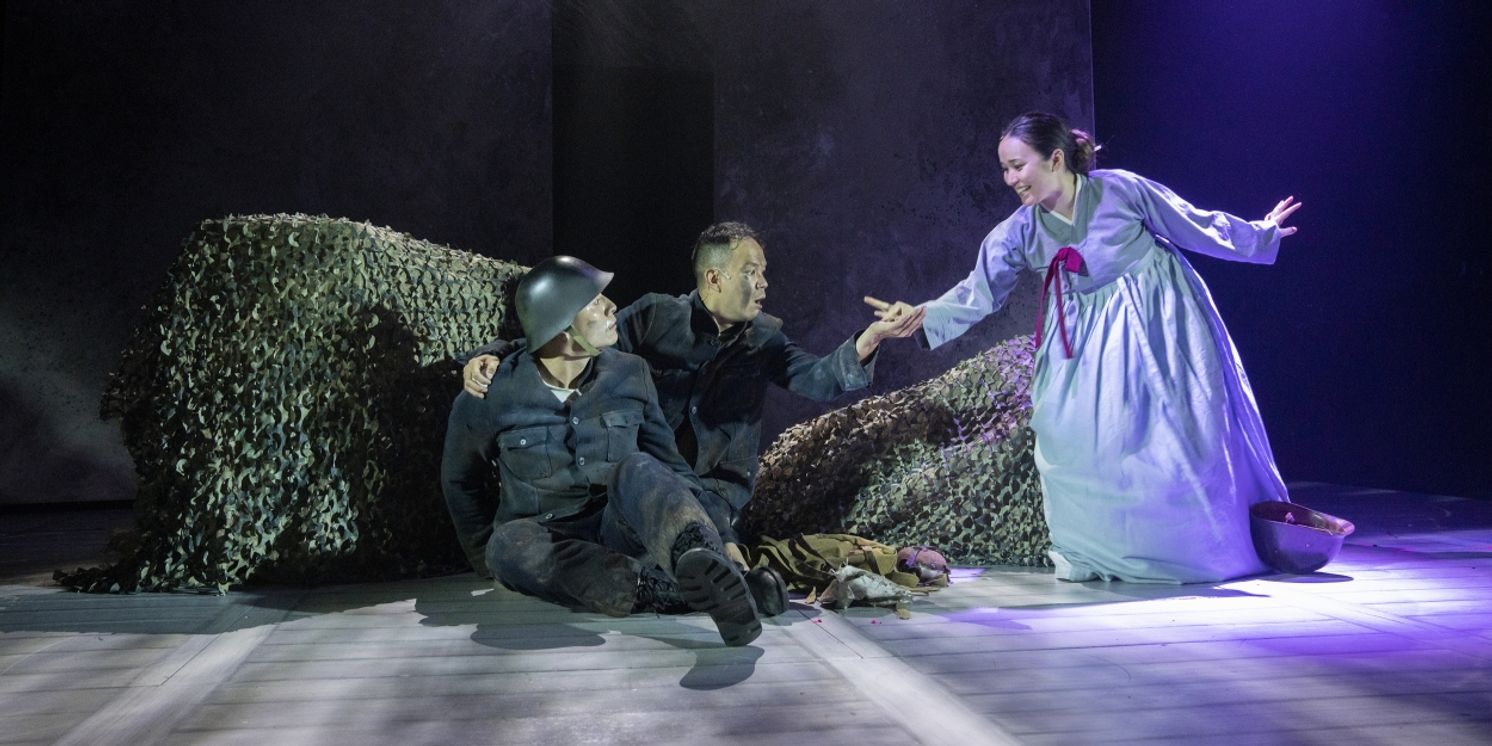Review Roundup: ONCE UPON A (KOREAN) TIME at Ma-Yi Theater Company - What Did the Critics Think?
Read all of the critics' reviews for ONCE UPON A (korean) TIME!

Ma-Yi Theater Company is presenting the world premiere of Daniel K. Isaac's ONCE UPON A (korean) TIME. Directed by Obie-winner Ralph B. Peña, Isaac's epic new play, which marks his playwriting debut, mixes traditional Korean fables with the horrors of the Korean War. ONCE UPON A (korean) TIME runs through September 18, 2022, at La MaMa's Ellen Stewart Theatre (74 East 4th Street, Manhattan).
ONCE UPON A (korean) TIME is a funny and deeply moving analog for the experiences of the Korean American diaspora. Isaac deftly moves his characters through time, tracing the legacies of trauma that are passed from one generation to the next, and the various coping mechanisms each one uses to soldier on.
The cast for ONCE UPON A (korean) TIME includes Sonnie Brown, Sasha Diamond, David Lee Huynh, Teresa Avia Lim, Jon Norman Schneider, David Shih, and Jillian Sun with Daniel K. Isaac and Sami Ma serving as understudies.
The creative team for ONCE UPON A (korean) TIME includes Se Oh (scenic design), Phuong Nguyen (costume design), Oliver Wason (lighting design), Yee Eun Nam (projection design), Fabian Obispo (sound design), Alexander Wylie (props design), and AK Howard (production stage manager).
See what the critics are saying...
Alexis Soloski, The New York Times: Under Peña's direction, the shifts between time periods, and between realism and fairy tale, are not always fluid. Se Hyun Oh's set, which is mostly two monoliths, labors to suggest everything from a cave to a convenience store. Despite evocative lighting from Oliver Wason, flexible projections from Yee Eun Nam, and Phuong Nguyen's judicious costumes, these spaces rarely feel fully invoked. The final two scenes, in which stories are narrated but not fully enacted, are the most successful. And that could be either because these scenes are the least formally ambitious, or because they feel the most personal.
Jonathan Mandell, New York Theater: There are moments in "Once Upon A (Korean) Time" that might have been more easily understood if the storyteller could have just told the folk tale, without having to act it out as well. It's a clever conceit, but it would have been less confusing to have a different person act out the tale. Those theatergoers without at least a rudimentary knowledge of Korean and Korean-American history might at times feel left out.
Amanda Marie Miller, Theatrely: As I made my way out of the theatre, I couldn't help but notice the small gatherings and meetings happening in the lobby after the show, groups laughing and humming the show's BLACKPINK and BTS tunes. Isaac's quest to capture his community on paper exceeds its original intent. The Korean fables have made their way into additional groups and will surely be passed on again.
Howard Miller, Talkin' Broadway: The play concludes on a distinctly upbeat note that leaves us with a great appreciation for those who survived and for those who were lost along the way. Daniel K. Isaac has said his goal was to create something that was "unapologetically epic and explosively theatrical." With Once Upon a (Korean) Time, he has largely succeeded.
- To read more reviews, click here!
- Discuss the show on the BroadwayWorld Forum
Reader Reviews
Videos

